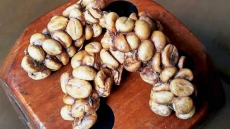Brain tumours evade detection by the body's defence forces by coating their cells with extra amounts of galectin-1 protein, says a study.
The stealth approach lets the tumours hide until it is too late for the body to defeat them, the findings showed.
"We found that over-expression of galectin-1 inhibits the innate immune system, and this allows the tumour to grow large enough to evade any possible effective T cell (dubbed the body's 'second line of defence') response," said Pedro Lowenstein from University of Michigan Medical School in the US.
"By the time it is detected, the battle is already lost," Lowenstein added.
The findings, made in mice and rats, showed the key role of galectin-1 in some of the most dangerous brain tumours, called high grade malignant gliomas and open the door to research on the effect of blocking galectin-1 in patients with gliomas.
When the researchers blocked cancer cells from making galectin-1, the tumours were eradicated -- they did not grow at all.
That is because the "first responders" of the body's immune system - called natural killer or NK cells - spotted the tumour cells almost immediately and killed them.
But when the tumour cells made their usual amounts of galectin-1, the immune cells could not recognise the cancerous cells as dangerous.
That meant that the immune system could not trigger the body's "second line of defence", called T cells - until the tumours had grown too large for the body to defeat.
The study appeared in the journal Cancer Research.





